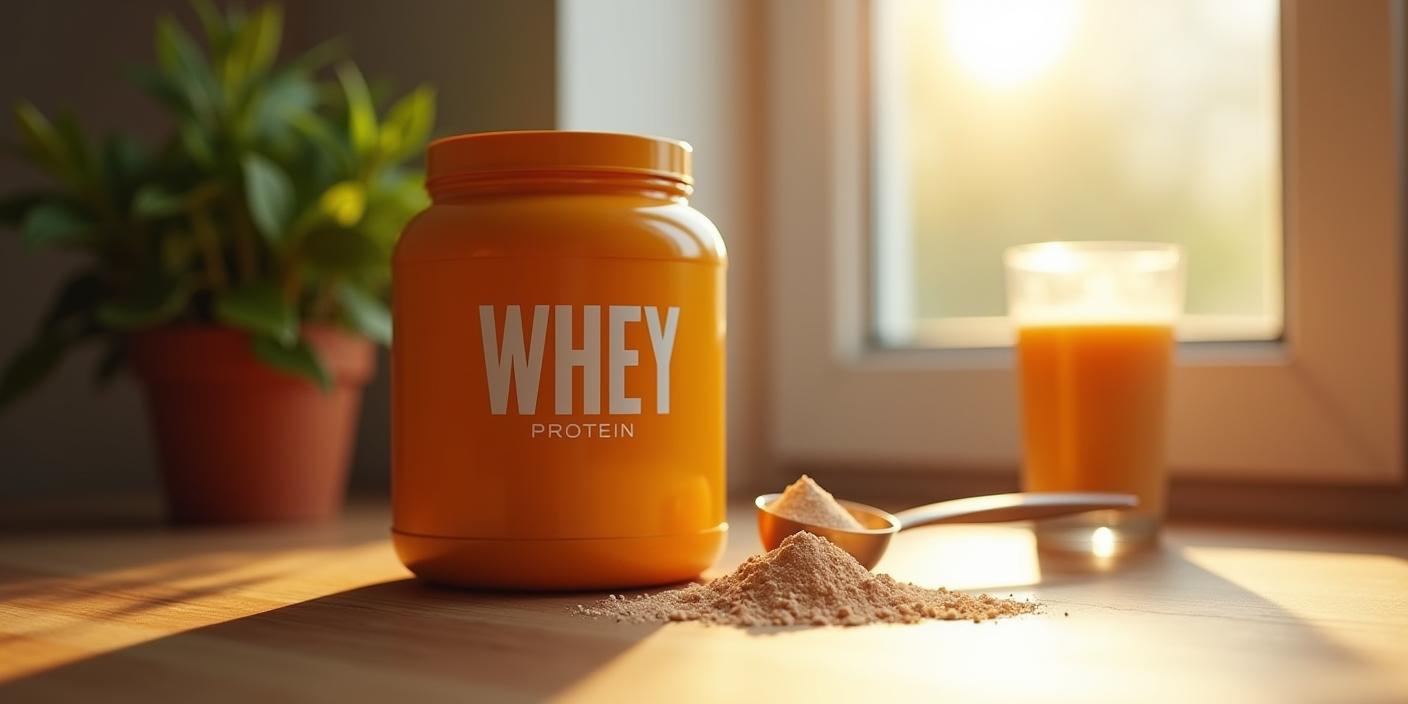If you’re looking for the perfect protein supplement to fuel your fitness journey, you’ve probably come across two popular options: whey protein vs soy protein. But which one should you choose? With so many conflicting opinions out there, it can be overwhelming to make the right decision.
Don’t worry—we’ve got you covered! In this blog, we’ll break down the key differences, benefits, drawbacks, and the best choice for your specific goals in a simple, engaging, and easy-to-understand way.
What is Whey Protein?
Whey protein is derived from milk and is a byproduct of cheese production. It contains all nine essential amino acids, making it a complete protein. It’s also rich in branched-chain amino acids (BCAAs), particularly leucine, which is known for its role in muscle protein synthesis.
Common Types of Whey Protein:
- Whey Protein Concentrate – Contains 70-80% protein, with some fat and lactose.
- Whey Protein Isolate – Contains 90%+ protein with very little lactose and fat.
- Whey Protein Hydrolysate – Pre-digested for faster absorption.
What is Soy Protein?
Soy protein is derived from soybeans and is also a complete protein with all essential amino acids. It’s popular among vegans and those with lactose intolerance. Additionally, soy protein is rich in isoflavones, plant compounds that mimic estrogen and offer potential health benefits.
Common Forms of Soy Protein:
- Soy Protein Concentrate – Contains about 70% protein and retains some fiber.
- Soy Protein Isolate – Contains 90%+ protein and is highly refined.

Whey Protein vs. Soy Protein: Key Differences
|
Feature |
Whey Protein | Soy Protein |
|
Source |
Dairy (Milk) |
Plant-based (Soybeans) |
| Protein Quality | Complete (High BCAA) |
Complete (Balanced Amino Acids) |
|
Digestion Speed |
Fast |
Moderate |
|
Lactose-Free? |
No (except isolate) |
Yes |
|
Vegan-Friendly? |
No | Yes |
| Muscle Growth | Excellent (High Leucine) |
Good |
|
Heart Health |
Neutral | May Improve |
| Hormonal Impact | No impact |
Contains phytoestrogens |
Which One is Better for Muscle Growth?
If your goal is to build lean muscle, whey protein takes the lead. Its high leucine content directly stimulates muscle protein synthesis, helping you recover faster after workouts. Studies suggest whey protein is superior for strength and muscle mass gains, especially post-exercise.
However, if you’re vegan or lactose-intolerant, soy protein can still be an excellent choice. While it doesn’t have as much leucine as whey, it still provides the necessary amino acids for muscle repair.
Whey protein vs Soy protein: Which One is Better for Weight Loss?
Both proteins can support weight loss by increasing satiety and preserving lean muscle while cutting calories.
- Whey protein may have a slight edge due to its higher thermic effect, meaning your body burns more calories digesting it.
- Soy protein is also effective and has been linked to reductions in abdominal fat in some studies.
What About Heart Health?
Soy protein is known for its potential heart-health benefits. The isoflavones in soy may help lower bad cholesterol (LDL) and improve heart health, making it a great choice for those looking to manage cholesterol levels.
Whey protein, on the other hand, has a neutral to positive effect on heart health but lacks the cholesterol-lowering benefits of soy.
Are There Any Side Effects?
- Whey Protein: Some people experience bloating, gas, or digestive discomfort due to lactose intolerance. Whey isolate is a better option for those who are lactose-sensitive.
- Soy Protein: Some studies suggest that excessive soy intake could impact hormone levels in men, but moderate consumption is generally safe.
So, Which One Should You Choose?
- If you want fast muscle recovery and maximum muscle growth, go for whey protein.
- If you’re vegan, lactose-intolerant, or looking for heart benefits, soy protein is a great alternative.
- If you prefer a well-rounded, plant-based protein with additional health benefits, soy protein may be the way to go.

Can You Combine Whey and Soy Protein?
Yes! Some people choose to combine whey and soy protein to get the benefits of both. This can be especially useful if you want to balance digestion speed, improve muscle recovery, and get a variety of amino acids.
Best Times to Consume Whey or Soy Protein
- Whey Protein: Best taken post-workout due to its fast absorption.
- Soy Protein: Can be taken anytime, but it works well as a meal replacement or snack due to its slower digestion.
So, Which One Should You Choose?
- If you want fast muscle recovery and maximum muscle growth, go for whey protein.
- If you’re vegan, lactose-intolerant, or looking for heart benefits, soy protein is a great alternative.
- If you prefer a well-rounded, plant-based protein with additional health benefits, soy protein may be the way to go.
At the end of the day, both Whey Protein vs. Soy Protein have their place in a healthy diet. The best choice depends on your personal preferences, dietary restrictions, and fitness goals. Whether you pick whey or soy, the key is to stay consistent and choose high-quality protein sources.



